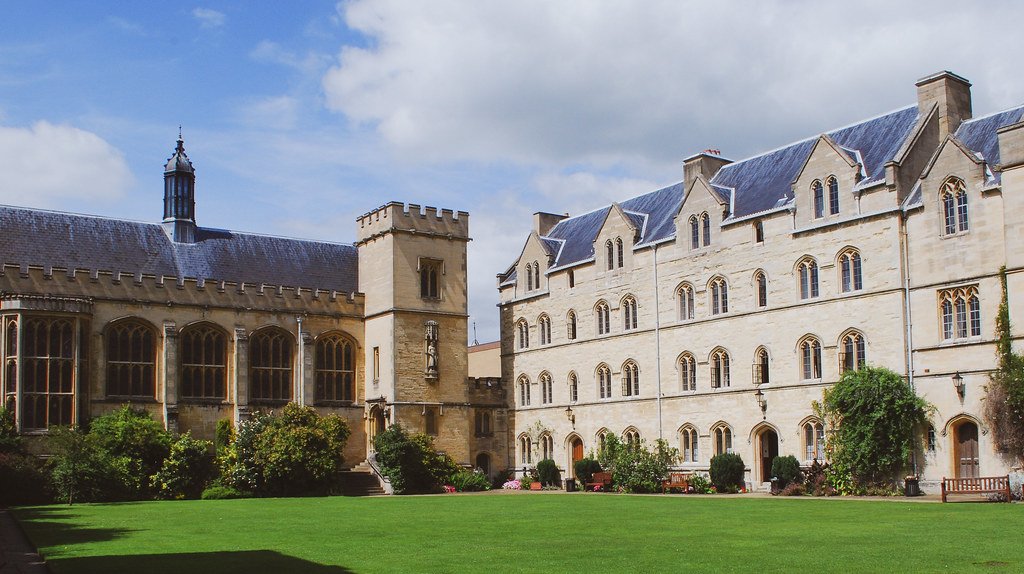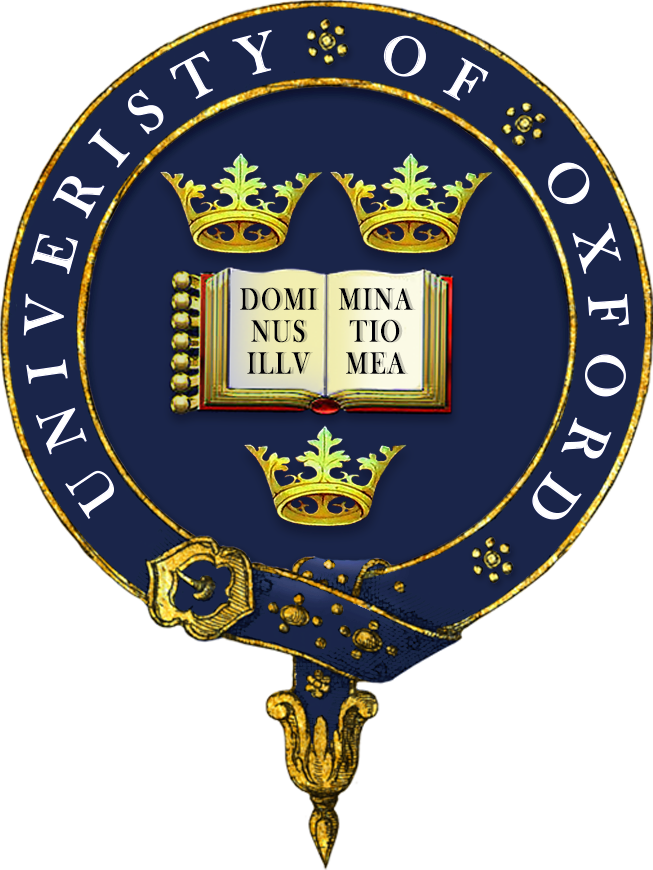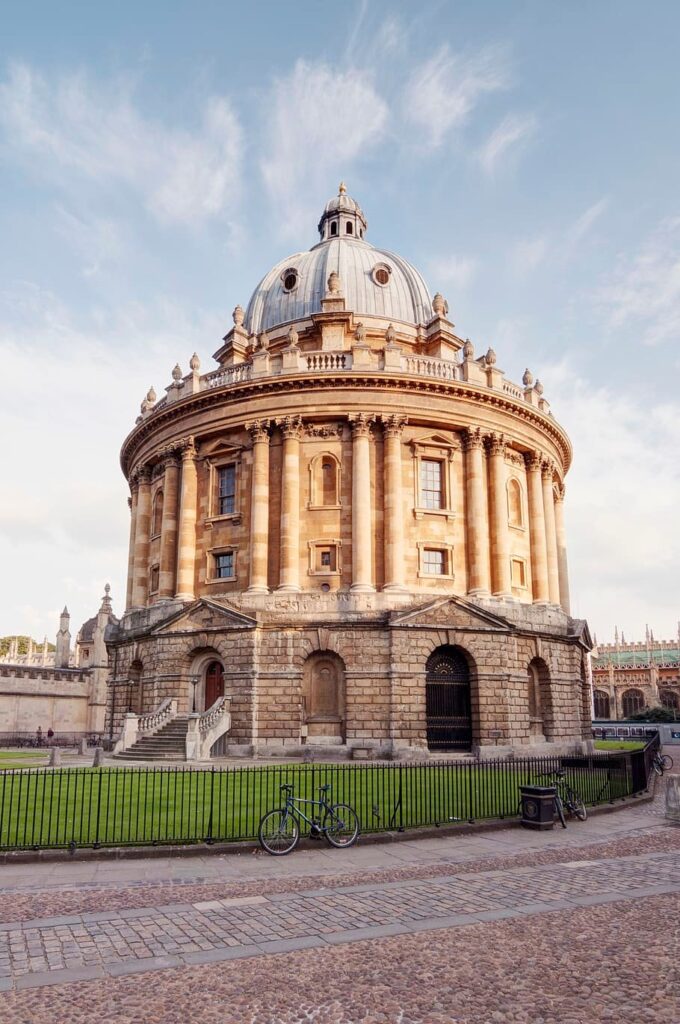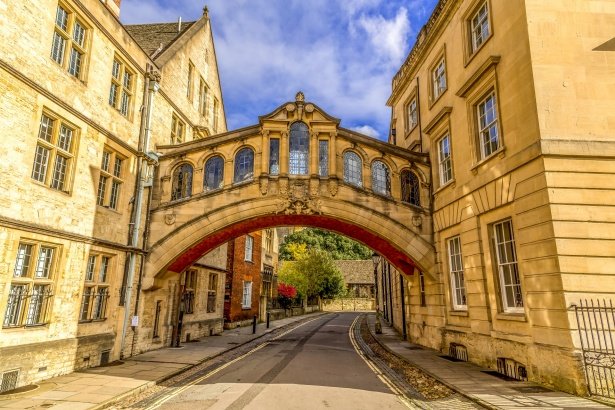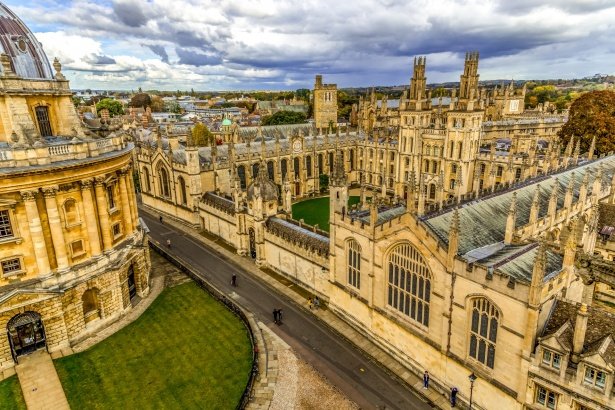Featured Programs
Anything designed by human beings exhibits visual qualities that are specific to the place and period in which it originates.
History of Art aims to arrive at a historical understanding of the origins, meaning and purpose of art and artefacts from a wide range of world cultures. It asks about the circumstances of art and artefacts' making, their makers, the media used, the functions of the images and objects, their critical reception and – not least – their subsequent history.
As well as educating students in the historical interpretation of art in its cultural contexts, a degree in History of Art provides skills in the critical analysis of objects through the cultivation of visual literacy.
The acquired skills have broad applicability in a wide range of professional settings, as well as serving the needs of enduring personal enlightenment.
The University collections, including the famous Ashmolean and Pitt Rivers museums, provide subjects for first-hand study under the supervision of those entrusted with their care. The historic architecture of the city and its environs supplies a rich source of study in its own right.
The Oxford degree is designed to provide innovative insights into a wide range of world art, drawing its expertise from various University faculties and the staff of University collections, as well as from the department itself.
There is a strong emphasis upon how the primary visual and written sources from various periods and places can be analysed in different ways. Students are encouraged to enquire about the nature of reactions to what we call ‘art’.
Modern Languages have been taught in Oxford since 1724. The faculty is one of the largest in the country, with a total intake of more than 250 students a year (including joint courses).
Undergraduate students have access to the Taylor Institution Library, the biggest research library in Britain devoted to modern languages, and the University’s central library the Bodleian, as well as many online resources. The University’s well-equipped Language Centre has resources specifically tailored to the needs of Modern Language students.
Language is at the centre of the Oxford course, making up around 50% of both first-year and final examinations. The course aims to teach spoken fluency in colloquial and more formal situations, as well as the ability to write essays in the foreign language, and the ability to translate into and out of the foreign language with accuracy and sensitivity to a range of vocabulary, styles and registers. You will also develop your reading skills to a high level.
The University of Oxford is a collegiate research university in Oxford, England. There is evidence of teaching as early as 1096, making it the oldest university in the English-speaking world and the world's second-oldest university in continuous operation. It grew rapidly from 1167 when Henry II banned English students from attending the University of Paris.
The university is made up of thirty-nine semi-autonomous constituent colleges, five permanent private halls, and a range of academic departments which are organised into four divisions. All the colleges are self-governing institutions within the university, each controlling its own membership and with its own internal structure and activities. All students are members of a college. It does not have a main campus, and its buildings and facilities are scattered throughout the city centre. Undergraduate teaching at Oxford consists of lectures, small-group tutorials at the colleges and halls, seminars, laboratory work and occasionally further tutorials provided by the central university faculties and departments.
University Stats

Entry Requirements
Accepted
For courses requiring A*A*A:
Either Four APs at grade 5 (including any subjects required for the course you are applying to)
OR
Three APs at grade 5 (including any subjects required for the course you are applying to) plus a score of 33 or above in the ACT or 1480 or above (out of 1600) in the SAT. We do not require the optional essay for either the ACT or the SAT.
Please note that Calculus AB and Calculus BC cannot be counted as two separate subjects for the purposes of meeting your offer, whether taken as separate tests or by receiving the AB sub-score when taking Calculus BC.
If you are applying for a course that requires Mathematics you should take Calculus BC if you are able to do so. However, courses will accept Calculus AB if you are unable to take Calculus BC.
The following combinations of Physics courses can be counted as two separate qualifications for the purposes of meeting your offer:
Physics C: Mechanics, and Physics C: Electricity and Magnetism
Physics 1 and Physics 2
Physics 1 and Physics C: Electricity and Magnetism
Physics 2 and Physics C: Mechanics
If you are taking both Physics C courses, or both Physics 1 and Physics 2, you will not be able to count any additional Physics courses towards your offer requirements. In addition, only the specified combinations of Physics 1/2 and Physics C are permitted.
For courses requiring A*AA:
Either Four APs at grade 5 (including any subjects required for the course you are applying to)
OR
Three APs at grade 5 (including any subjects required for the course you are applying to) plus a score of 32 or above in the ACT or 1470 or above (out of 1600) in the SAT. We do not require the optional essay for either the ACT or the SAT.
Please note that Calculus AB and Calculus BC cannot be counted as two separate subjects for the purposes of meeting your offer, whether taken as separate tests or by receiving the AB sub-score when taking Calculus BC.
If you are applying for a course that requires Mathematics you should take Calculus BC if you are able to do so. However, courses will accept Calculus AB if you are unable to take Calculus BC.
The following combinations of Physics courses can be counted as two separate qualifications for the purposes of meeting your offer:
Physics C: Mechanics, and Physics C: Electricity and Magnetism
Physics 1 and Physics 2
Physics 1 and Physics C: Electricity and Magnetism
Physics 2 and Physics C: Mechanics
If you are taking both Physics C courses, or both Physics 1 and Physics 2, you will not be able to count any additional Physics courses towards your offer requirements. In addition, only the specified combinations of Physics 1/2 and Physics C are permitted.
For courses requiring AAA:
Either Four APs at grade 5 (including any subjects required for the course you are applying to)
OR
Three APs at grade 5 (including any subjects required for the course you are applying to) plus a score of 31 or above in the ACT or 1460 or above (out of 1600) in the SAT. We do not require the optional essay for either the ACT or the SAT.
Please note that Calculus AB and Calculus BC cannot be counted as two separate subjects for the purposes of meeting your offer, whether taken as separate tests or by receiving the AB sub-score when taking Calculus BC.
If you are applying for a course that requires Mathematics you should take Calculus BC if you are able to do so. However, courses will accept Calculus AB if you are unable to take Calculus BC.
The following combinations of Physics courses can be counted as two separate qualifications for the purposes of meeting your offer:
Physics C: Mechanics, and Physics C: Electricity and Magnetism
Physics 1 and Physics 2
Physics 1 and Physics C: Electricity and Magnetism
Physics 2 and Physics C: Mechanics
If you are taking both Physics C courses, or both Physics 1 and Physics 2, you will not be able to count any additional Physics courses towards your offer requirements. In addition, only the specified combinations of Physics 1/2 and Physics C are permitted.
Superscoring
Please note that to meet the requirements of an offer to the University, your SAT Total Score for the SAT Evidence-based Reading and Writing, and SAT Math sections must be from the same session; we will not consider scores from multiple sessions ('superscoring'). This also applies to scores for the ACT, so we will only consider the ‘Highest Full Battery’ score, and not the ACT Superscore.
Candidates are asked to enter all their scores for any tests taken when they complete their UCAS application, showing the relevant dates for each. This gives tutors a complete picture of a candidate's academic record, rather than just the ‘superscore’ of best results for the different sections of any test taken on multiple occasions.
Candidates are also asked to include any pending test scores on the UCAS application: that is, details of any test they intend to take up until the end of Senior Year. Again, this is to give tutors a complete picture of the candidates’ academic record, including studies which are still in progress.
AP Capstone Programme
Where applicants have undertaken the additional AP qualifications making up the AP Capstone Diploma (AP Seminar and AP Research) these will not be a condition of any offer. However, the University recognises that they may provide an applicant with the opportunity to develop research and academic skills relevant for higher education. Where relevant, candidates may draw upon relevant subject understanding and interest explored via the AP Capstone Diploma when writing their personal statement.
Score cancellation/withdrawal
We are aware that students taking APs can apply to College Board to have their scores cancelled or withdrawn. However, it is a requirement of the UCAS application process for students to declare all results, including any that have been cancelled or withdrawn, so that tutors are able to consider students' full educational profile. Failure to declare all qualifications could result in Oxford withdrawing any offer made to you.
Not accepted
- Associate degrees
- College Level Examination Programs (CLEPs)
- GED (General Education Development)
- Dual enrolment
Contact University of Oxford
